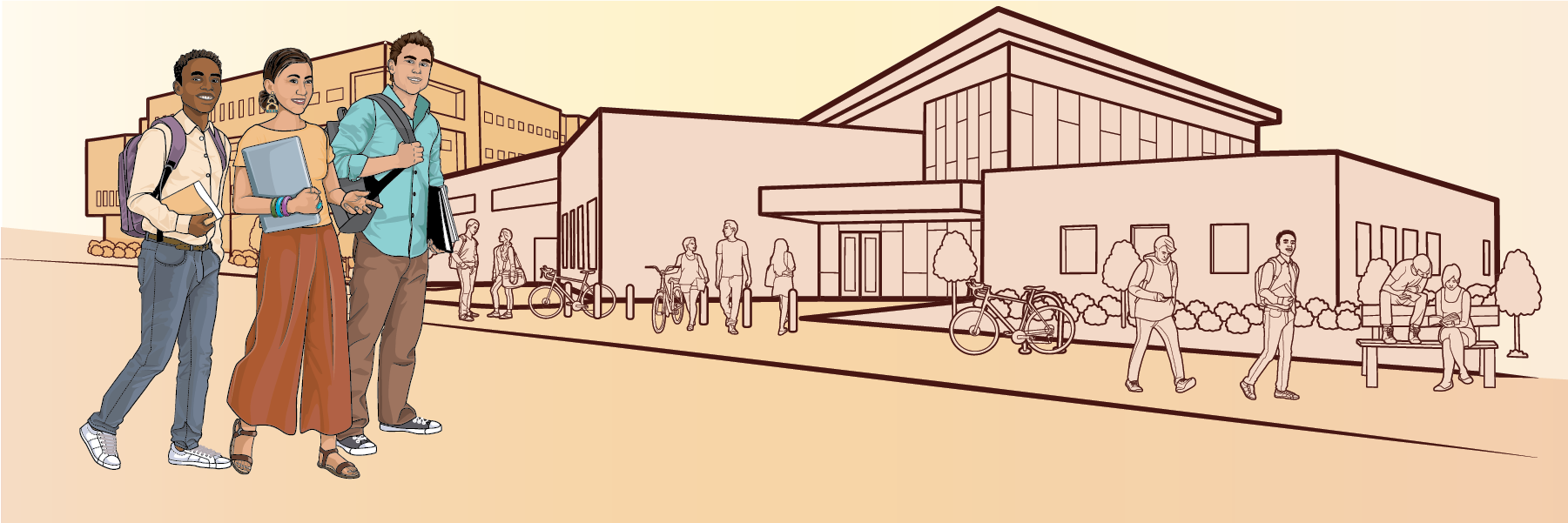Guiding Principles
Connection & Empowerment
Learning communities address students’ foundational need to feel connected; when they feel connected, they are more likely to thrive, attend class, get involved in student clubs and events, and complete college. Providing this community and context is something that first-year experiences do well.
Here are elements that have been shown to help students feel connected:
Welcome events that introduce students to their success team, faculty, and other students in their meta-major, and to student support resource people.
First-year seminars that orient students to college, their meta-major, and the resources available to them on campus.
An assigned counselor and/or success coach who serves as their point person for questions and as a connection to resources.
Workshops and events that help students maintain connections to the college and their peers.
Exploration
Meta-majors provide a structure to support students to explore majors and related careers. First-year experience programs help students explore majors and related careers using career surveys, meta-major exploration, and welcome events where students learn about programs at their college. Many colleges are also developing student success teams that support students in a particular meta-major ensuring the they are connected to resources that they need or are relevant to their meta-major or major. Learn more about this in the Career unit of this Design Guide.
The exploration can be customized to meet students where they are in their career ideation:
For a student who is undecided about a major or career: Build college and career exploration into the first semester to support students in finding a pathway where their interests and passions intersect with college and career opportunities.
For a student who knows their intended major: Provide opportunities to explore careers related to their major choice so students learn about the realities of working in their chosen field.
How does early career exploration help students?
Intentional college and career exploration can help students understand the opportunities available to them and decrease the likelihood that they will lose time and money switching majors. Some students come in set on a particular major or career, but when they get into the coursework or enter a work-based learning experience or practicum, they discover they don’t like the field or the coursework. One common example is a student who wants to major in nursing, but discovers they are uncomfortable seeing blood. Exploration provides students the opportunity to learn things like this before they are too far down one path.
Embedded Support
In a student’s first year, integrated support is key to a smooth transition and continued success. Building supports to assist students through major milestones in their first year can set students up for success. Then continuing support through a student’s journey leveraging the student success team or specialist will help students stay connected to an established support network.
Sample embedded first year support:
Application: At college days and other events, students can get support in applying to the college and completing the FASFA.
Pre-Registration: At orientations or welcome events, students explore opportunities at college.
Registration and ed plan: At orientations or registration parties, students can meet with a counselor, get help with the registration process, and create a first-year plan.
Required counselor or success coach meetings: Requiring students to meet with a counselor or coach during the first month of their first semester supports students to identify where they may need help before challenges hinder their success.
Embedded Tutors: Embedding tutoring in key first-year classes can familiarize students with the academic support available to them and help them feel comfortable using it. Embedded tutors also become a key part of students’ support network.





